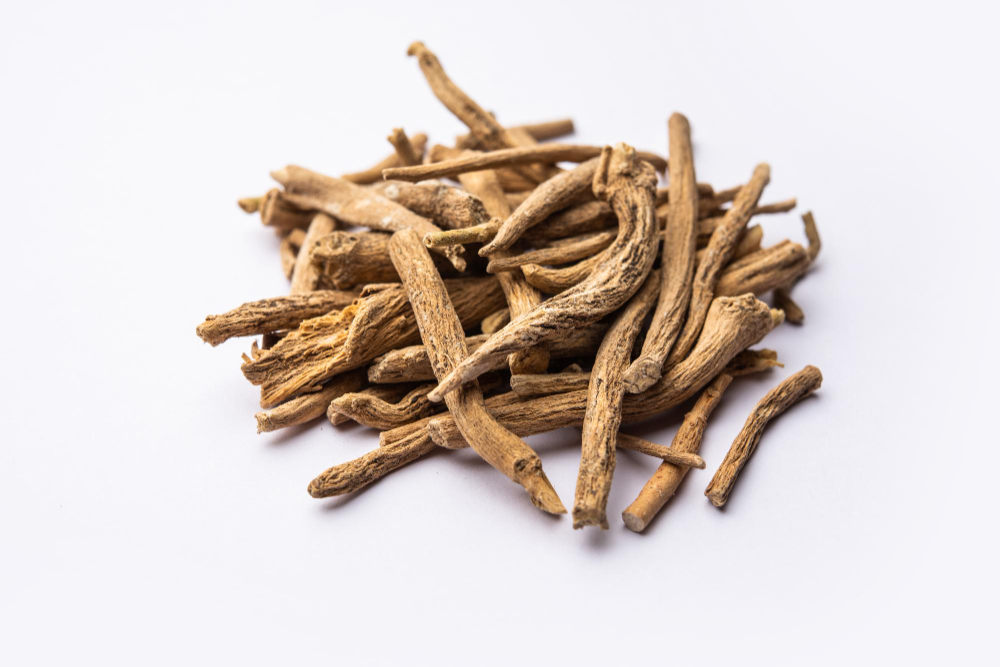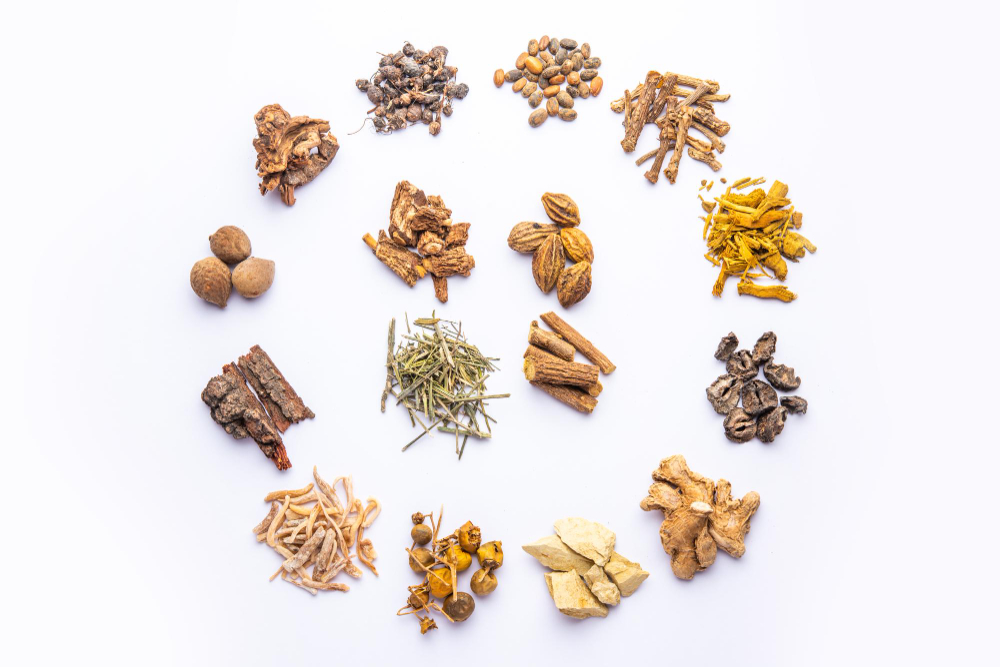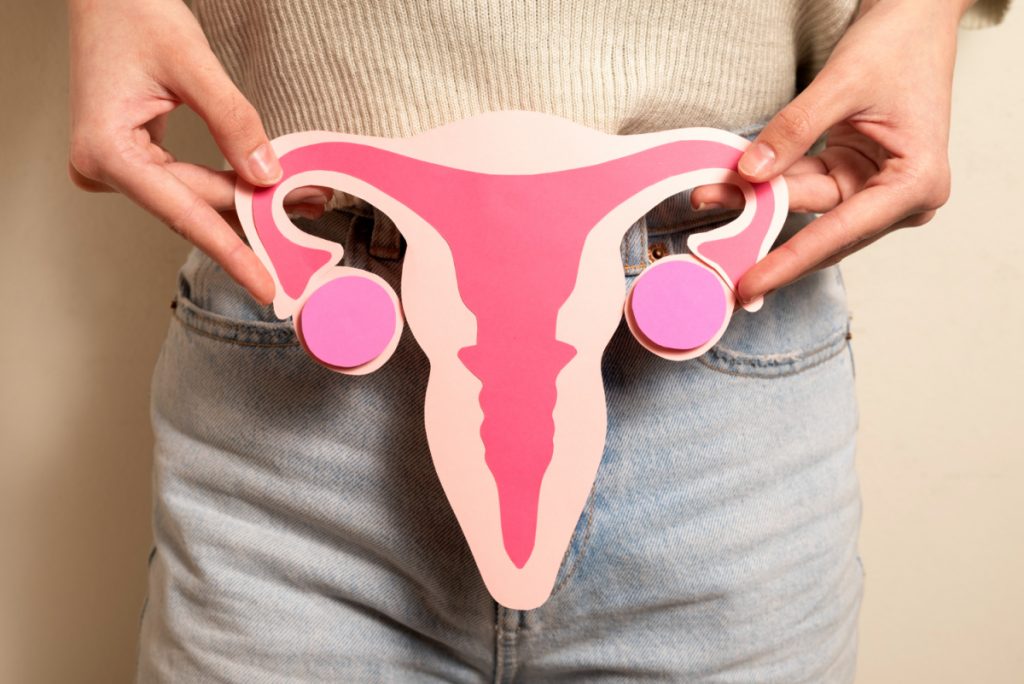PCOS is such a problematic condition in women that you are usually prescribed many drugs and supplements to control the disease. This can make you worry about synthetic medicines’ possible side effects and discomfort. For this reason, you would look for something natural.
Herbal treatment is also common for PCOS since several herbs have essential ingredients to mitigate PCOS symptoms. The problem is which one to choose.
So, what about Ashwagandha for PCOS? Is it as fabulous as it sounds?
Ashwagandha is proven to relieve various PCOS symptoms with its adaptogenic properties. It can stimulate the central nervous system to control cortisol levels and activate GABA receptors to reduce stress. It also eased PCOS by improving insulin sensitivity.
Continue to find out how Ashwagandha works, its various benefits, and possible side effects to understand whether or not you can take it.
Ashwagandha for PCOS: Regain Homeostasis
The main reason to use Ashwagandha for PCOS is that it helps to maintain a balance of female hormones. It is a powerful adaptogen to reduce stress by stimulating the central nervous system. The effect is more impactful when Ashwagandha and magnesium are taken together.
When you are more relaxed, it will, in turn, relieve the symptoms of PCOS with homeostasis.
Any element that is an adaptogen will try to adapt to the body’s environment and target the disease. Then it will help the brain to restore balance in the cells for normal functioning.
In particular, Ashwagandha fights stress by reducing cortisol levels and activates GABA or Gamma-aminobutyric acid receptors so that the brain doesn’t receive stress signals. So, the body’s hormones can remain stable with regular functioning, which is the primary healing for PCOS patients.
Insulin sensitivity is a significant outcome among women with PCOS. Ashwagandha has been reported to have insulin-sensitizing and anti-inflammatory effects that improve insulin sensitivity.

Benefits of Using Ashwagandha for PCOS
So, why would you turn to Ayurveda to treat PCOS instead of different drugs? Is stress relief all you need, or are there other benefits? Check it out here.
Helps to Reduce Obesity
When you are relieved from stress by using Ashwagandha, it will also stop you from stress eating or gaining weight from stress. Cortisol levels should be low to reduce hunger. Then it gets easier to maintain a diet for weight loss.
Controls Hormonal Imbalance
Perhaps the magical property of Ashwagandha is its adaptogenic quality to regulate the endocrine system to help normalize hormonal functions. So, even if you suffer a little stress, your hormones will function adequately, bringing other bodily functions to balance.
Alleviates Anxiety and Depression
Again, with its adaptogenic property, Ashwagandha induces a calming effect on the body. It has tryptophan to build more serotonin in the body so that you have a better mood. Besides, GABA or Gamma-aminobutyric acid receptors block any signal in the brain that would cause anxiety.
Decrease in Insulin Resistance
Another difficulty for PCOS patients includes the rise in blood sugar levels. To fix this problem, Ashwagandha reduces insulin resistance so the body can produce more insulin. This will, in turn, allow the ovaries to create more androgen hormones like testosterone. So, you are relieved from both diabetic symptoms and hormonal problems like unwanted body hair, acne, and irregular menstrual cycles.
Heals Treats Infertility and Manages Female Cycles
Ashwagandha’s ability to decrease anxiety or stress balances the female reproductive system. When the cortisol levels are low, and your body suffers less tension, the progesterone levels can increase for healthier menstruation cycles. So, it will also have a positive effect on libido and fertility chances.
Removes Sleep Disorders, Fatigue, and Thyroid Imbalance
Stress is also a downer for sound sleep. So, when Ashwagandha gets rid of stress, you also feel less tired and get better sleep. Besides, it takes care of thyroid imbalance which will otherwise increase fatigue and mess up your sleep cycle.
It works directly on the thyroid glands by stimulating the brain to reduce cortisol levels. This will fight stress and balance thyroid hormones.
Decreases Inflammation
Ashwagandha is also said to have anti-inflammatory properties. PCOS makes you suffer from inflammation a lot. So, this herb will allow the T-cells to fight inflammation. It also reduces inflammatory markers like the C-reactive proteins.
Your body will then have lower androgens to improve fertility.
Manages Cholesterol Levels
Higher cholesterol levels are also a problem for PCOS patients. But Ashwagandha will reduce this level a lot. You will then have higher HDL levels. This will decrease the chances of having any heart problems.
How to Use Ashwagandha for PCOS?
The FDA settles no standard dose. So, to take Ashwagandha, you must consult your healthcare specialist. You will be prescribed around 450–500 mg once or twice daily for capsules with the root extract. For stress relief in particular, take 250-600 mg daily.

The amount will also depend on the form you take Ashwagandha, like powder, liquid, or capsules. Raw extract or powdered form is the best one.
You can take it twice daily with 1 tsp or 5g of powder and a liquid of your choices, like ghee, milk, or honey. You can also make tea with Ashwagandha, adding a little cardamom. Or use warm milk and add half a teaspoon of Ashwagandha, cinnamon, nutmeg, and ginger for a delicious drink and a magic potion at once.
Do supplements like creatine impact PCOS?
Ashwagandha for Ovarian Cyst
Ovarian cysts are common for PCOS women, but others can also suffer from cysts. Some cysts can go away independently without treatment or from regular household remedies. Especially if you want an Ayurvedic treatment, then go for Ashwagandha.
It will reduce cortisol levels to fight stress and lower the levels of androgens in the body. This will positively affect the ovaries so that you can remove the cysts. Ovarian cysts can also hamper fertility, so Ashwagandha also improves the chances of getting pregnant.
Can You Take Ashwagandha and Inositol Together?
Usually, Ashwagandha doesn’t do well with other medications. But if you want to take supplements and herbal treatment together, you can take Inositol capsules with Ashwagandha. The blends of these supplements with Ashwagandha will boost the functions to relieve PCOS symptoms.
Some Inositol capsules contain a little Ashwagandha and vitamin D. But whichever you take, you can also mix selenium with the two for better results.
Other Benefits of Ashwagandha
Apart from healing PCOS symptoms, Ashwagandha has several other uses for both males and females to improve overall health.
- Improves mental health to increase focus and memory
- Aids in treating cancerous cells
- Stimulant for sexual functions
- Takes care of the heart
- Combats infections in reproductive organs
- Great for skin to have anti-aging, moisturizing, and healing properties
- Relieves issues in menopause
Side Effects of Ashwagandha
Even with all the benefits, Ashwagandha is a tough herb that all can’t use. If you take it regularly, you will find the following problems:
- Drowsiness
- Digestive problems and nausea
- Pregnancy complications
- Lower blood pressure
- Increase in thyroid functions
- Dry mouth
Who Should Avoid It?
The side effects of Ashwagandha limit the number of users of it. So, if you are suffering from the following conditions, it is better to avoid this herb.
- Pregnancy and breastfeeding mothers
- Hashimoto’s hypothyroidism
- Hyperthyroidism
- Rheumatoid arthritis
- Lupus
- Diabetes
- Digestive disorders or GI issues
Besides, if you are taking other supplements, don’t take Ashwagandha before consulting a doctor.
Other Herbs to Treat PCOS
Apart from Ashwagandha, there are other readily available herbs to heal PCOS. You can talk to your doctor to get an Ayurvedic treatment alongside other supplements for a more comfortable life.

Cinnamon
Although the bark is used as a spice for cooking, it can also help to reduce insulin resistance. Besides, it regulates menstrual cycles. You can also take it with Ashwagandha for flavor and better effects.
Turmeric
It is an anti-inflammatory agent that increases insulin production and destroys inflammatory agents in the body. Besides, it will allow the ovaries to function properly and increase fertility.
Shatavari
Another herbal plant to reduce endometrial disorder and PCOS symptoms. By taking it, you will improve follicular development and maintain ovulation. This herb also manages female cycles making menstruation regular and less painful. You get essential minerals and vitamins from a single herb like bioflavonoids, calcium, zinc, and type B vitamins.
Check whether zinc enhances your libido.
Ginger
You can also take ginger tea to remove inflammation. It has elements like gingerol, shogaol, paradol, and zingerone that can improve your menstrual cycle with less pain. Besides, ginger is anti-bacterial and a strong antioxidant for the immune system.
Fenugreek
Take some fenugreek seeds to reduce insulin resistance and control blood sugar levels. This will, in turn, relieve other PCOS symptoms. Besides, you can use it to manage your weight. Use it on an empty stomach for better results.
Basil
This is another herb for improving the immune system. It has anti-inflammatory and anti-androgenic properties to maintain hormonal balance. Besides, it is a powerful antioxidant to fight diseases. You can use it to regulate blood sugar levels and remove unwanted body hair.
FAQ
When can you take Ashwagandha for PCOS?
Herbal treatment can work at any time of the day, so take Ashwagandha whenever you can. But do ensure that you eat before taking it, ideally breakfast. It will be weeks before you find any visible results, so take it for months regularly. In case you face severe side effects like vomiting, stop taking it.
What is a good diet for PCOS patients while on Ayurvedic treatment?
Simply taking Ashwagandha or other medical herbs isn’t enough; you must also maintain your diet. So, nutritionists recommend you eat meals with fewer fats like red meat or fried and oily foods, low in sodium, and free from artificial additives and refined sugar. You should include more fruits, whole grains, and vegetables.
Conclusion
Ashwagandha can be a great natural supplement to help with your PCOS treatment. It offers a range of different benefits related to PCOS. Its function to reach the disease area and counter the effects is what you need to boost your immunity. Besides, it also allows you to have a more relaxed lifestyle.
It works directly with the central nervous system to normalize bodily functions. But remember that Ashwagandha also has some side effects and might not suit everyone. So, before you go for herbal treatment, consult your doctor about the dosage and time to take it.

I am a health and wellness enthusiast working in a Pittsburgh-based wellness clinic. My primary role as a consultant is to tailor a balanced lifestyle for my patients, where positive steps and potent supplements play a synergistic role.

